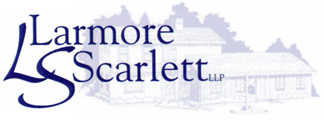A Closer Look At Estate Planning
Many people believe that estate planning is only necessary for the very wealthy. However, estate planning can benefit anyone who has physical or financial assets to pass on to loved ones or charity when he or she dies. Estate planning attorneys can help individuals develop a strategy to help make the process go more smoothly.
What Is Estate Planning?
Estate planning is the strategic preparation of documents, trusts and financial accounts that will guide how an individual’s physical and financial assets will be divided in the event of his or her death. Estate planning is an intricate process that is subject to change with Pennsylvania’s laws. That is why it is important to hire an experienced estate planning attorney. Drafting end-of-life documents on one’s own or using a software program may overlook changes in laws that render the documents invalid.
What Is A Will?
A will is a document that outlines someone’s wishes for how his or her assets will be divided when he or she passes on. For parents, wills can also name who will be the legal guardian or guardians of their children in the event of their passing.
In Pennsylvania, wills are not filed with the state until after an individual, called the testator, dies. That means the testator is able to change a wills terms and conditions whenever he or she wishes. Major life changes like having a child, divorce and retirement may necessitate modifying a will’s terms.
Anyone who has physical or financial assets should have a will. Without one, the state will divide property using according to state law. This means an individual’s wishes about how and to whom assets are given may not be fulfilled. The state can also take a long time to make these decisions, which means beneficiaries must wait longer for their inheritance than if a valid will existed.
What Is Probate?
Probate is the administrative process that occurs when someone dies. It involves filing documents with the state and dividing and distributing assets. In Pennsylvania, all probate estates go through the probate process, though trusts in which all assets are included follow their own procedures. Fortunately, the state’s probate procedure is fairly efficient and under certain circumstances will allow the personal representatives of each estate to administer assets without a lot of court intervention.
Personal representatives are the people responsible for administering an estate. When there is a will in effect, the personal representative is called an executor. When no will is present, the personal representative is called an administrator.
What Is A Living Trust?
A trust is a legal arrangement through which an individual transfers his or her assets to a trustee, which can be a person or institution. The trustee manages the assets for the benefit of beneficiaries who are named in the trust. There are many types of trusts, but one type in particular has become popular in recent years: a living trust.
Living trusts are established to manage assets while someone is still alive. They also include instructions for how those assets will be distributed once he or she passes on. A living trust can be revocable, which means its terms and conditions can be changed while an individual is still living, even if that individual experiences life changes like moving to a nursing home.
Some people believe that establishing a trust allows them to avoid paying estate taxes once they pass. Unfortunately, this is not always the case. Assets held in a trust or outlined in a will may both be subject to federal and state estate or gift taxes.
Another myth about trusts is that it is not necessary to draft a will if one establishes a trust. Any assets left out of a trust purposefully or by accident are subject to probate, so it is important to have a will even when a trust exists. Drafting a will ensures that all assets will be distributed as an individual wishes.
Estate planning is a long-term process that helps individuals establish how assets will be distributed in the event of their passing. To get started with your estate plan, contact an experienced estate planning attorney.




